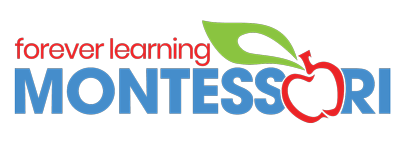Welcome back to the Cy-Fair Montessori blog! Today on our blog, we want to take it back to the basics and talk about what a Montessori school is and why it might be the right education style for your child. Every child is different and can benefit from various education styles and opportunities. However, many parents, and children-now-adults can attest to the Montessori education style as a significantly beneficial part of their overall education and learning experience. Stick around to learn more!
What is Montessori Schooling?
A Brief History of Montessori Schooling
Dr. Maria Montessori is responsible for developing the Montessori schooling model. In 1906, she created the Casa del Bambini translated to mean “Children’s House.” This school was to serve some of Rome’s most disadvantaged and unschooled children. She observed that many of the children learned from engaging in puzzles, their environment, and other hands-on experience, and ultimately, taught themselves.
After her first school’s success, she continued to open more schools in Italy and eventually published a book about her schools in 1909. The Montessori Movement came to the United States in 1911 in New York. The movement continued to gain momentum and spread throughout the United States. Montessori classrooms today have evolved with the times but at the foundation of this style of education is Dr. Montessori’s work.
Montessori Schools Today
Montessori schools in Houston and beyond have adapted to many of the needs of modern education. Some classrooms are bilingual, or have an immersive language component, and sometimes have a faith-based element. Other schools even incorporate community programs into their curriculum. Though every school is different, the basis of the Montessori model is built around self-motivated growth, the nurturing of each child’s natural desire for knowledge, their understanding, and respect.
Our Goal
At Cy-Fair Montessori we wish to provide Montessori education for early childhood to the Northwest Houston region.
Our Objective
With everything that we do, we wish to provide a safe, happy, and creative environment for our children that cultivates their intellectual, physical, emotional, and social skills.
Our Mission
We wish to provide the highest level of education that truly helps to foster the interests of each child using the Montessori method of learning. We have a highly motivated staff who care about the development and welfare of each child. We want to create a viable foundation to propel each child towards success.
Why Choose Montessori?
Traditional education focuses on the child fitting the mold of the masses while the Montessori method focuses on cultivating the strengths and interests of the individual child. As quoted from the American Montessori Society® website:
“Several key elements of the approach meet the educational goals for today’s parentes have for their children, including [sic] growing into capable people who will have a strong sense of self, the ability to connect with others and the potential to be productive throughout their lives.”
Ultimately, the Montessori method hopes to provide a foundation for children to thrive in today’s world.
They Develop Their Own Capabilities
The Montessori classroom provides ample opportunities for children to not only learn how to accomplish basic tasks like dress themselves, but also multiply a multi-digit equations, and communicate their needs, and learn how to work with others. Children get to learn how to function individually and as a member of a group.
They Become Accountable For Their Own Knowledge
Because students can develop their own interests and capabilities, they become accountable for their own knowledge. They are also given opportunities to learn how to self-correction and self-assess; as a result, they can learn from their own errors.
They Are Knowledgeable Through Nurture
From the moment children walk into a classroom of a Montessori school, their own coordination, concentration, and independence are nurtured. Children learn topics and meet the standards of state-learning through hands-on experiences, as well as through intentional classroom design, daily routines, and learning how to educate oneself.
They Develop a Foundational Sense of Self
One of the main elements of Montessori education is developing a strong sense of self and confidence. Students will also have an opportunity to mentor other students, as generally students will stay in the same classroom for three years; all students will develop relationships that can help to form a healthy community that can also instill individual confidence.
To learn more about the Montessori education model and, specifically how we employ it at our Montessori preschool, visit our website and contact us! You can also view our gallery and request a tour of our school.
